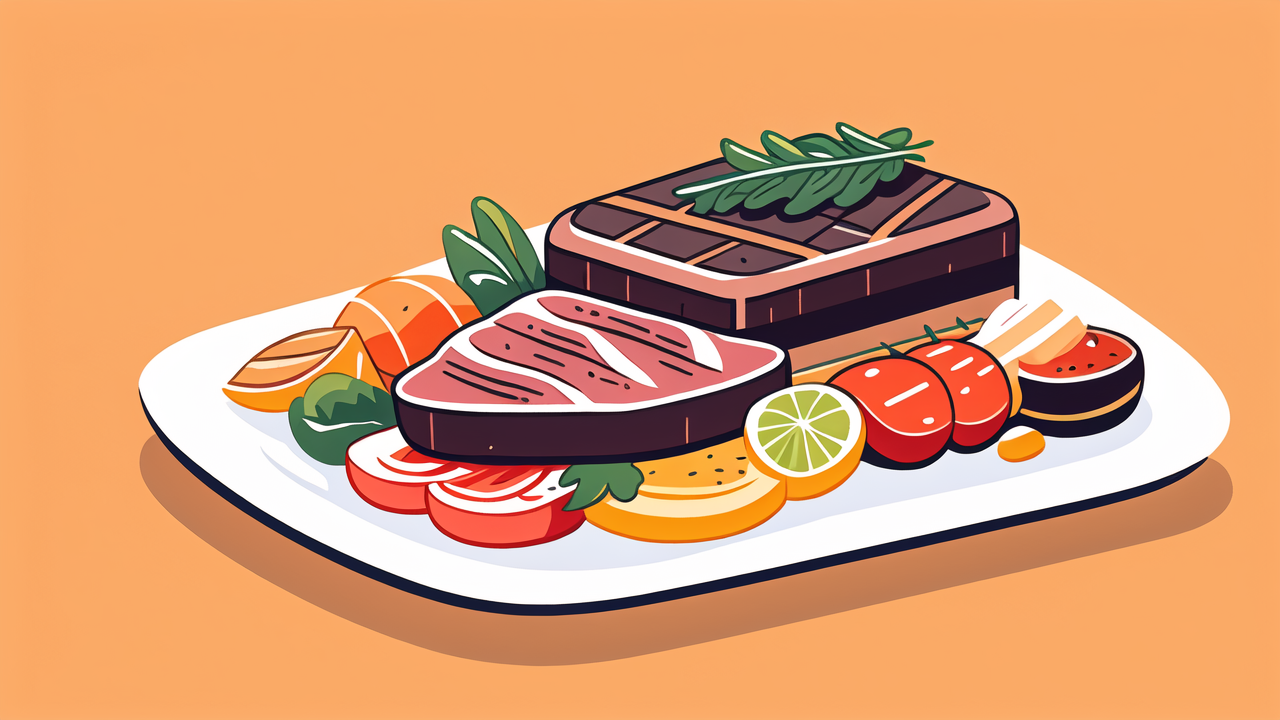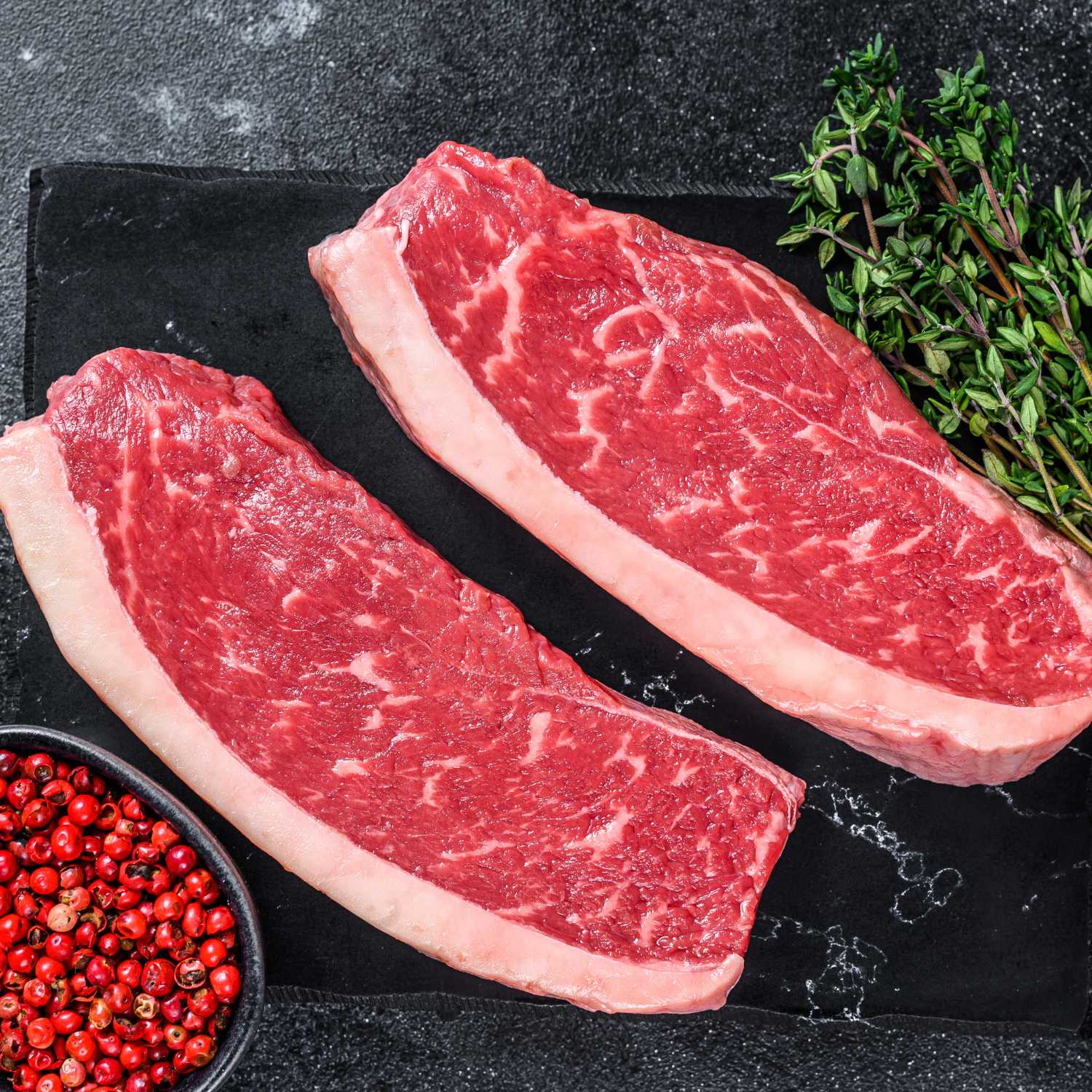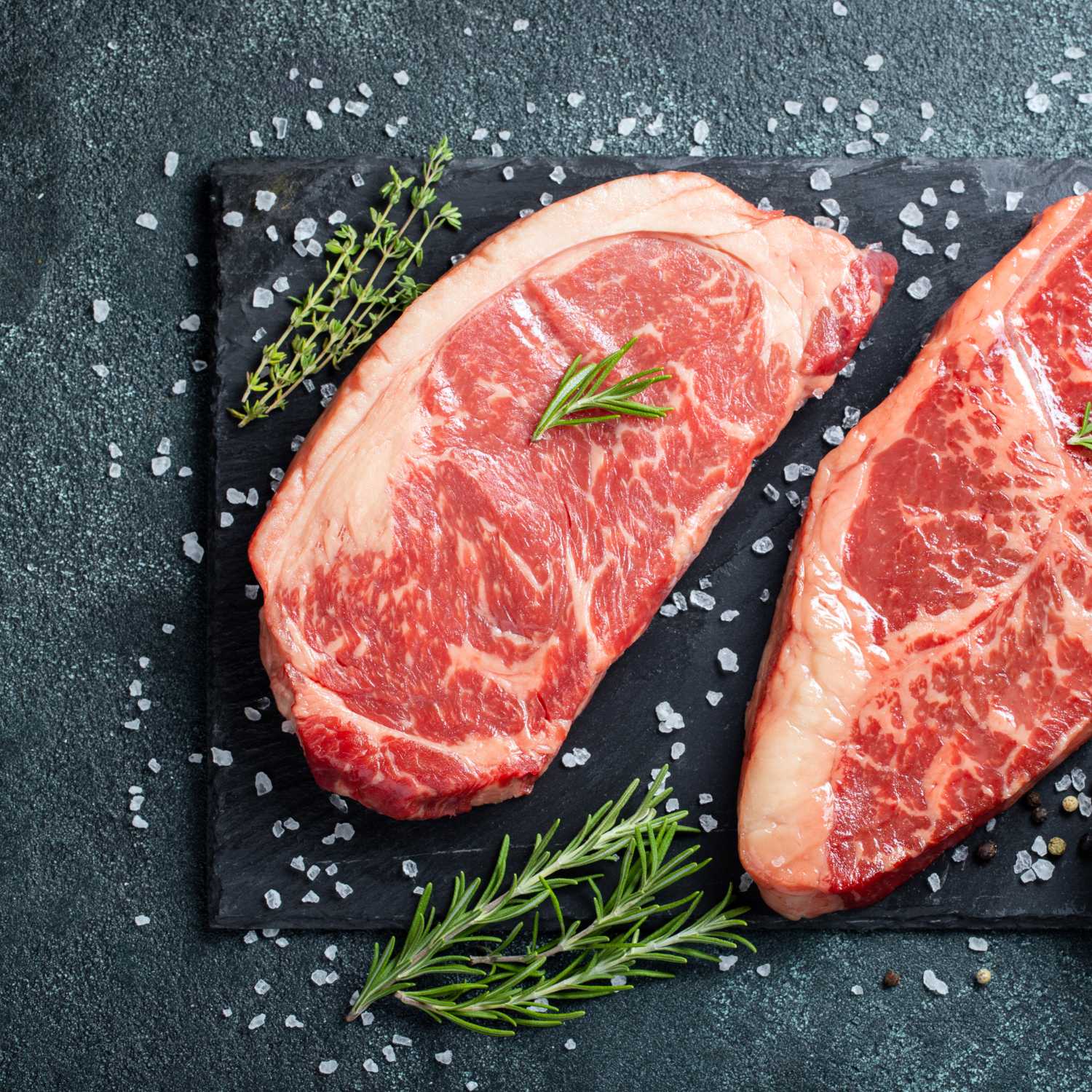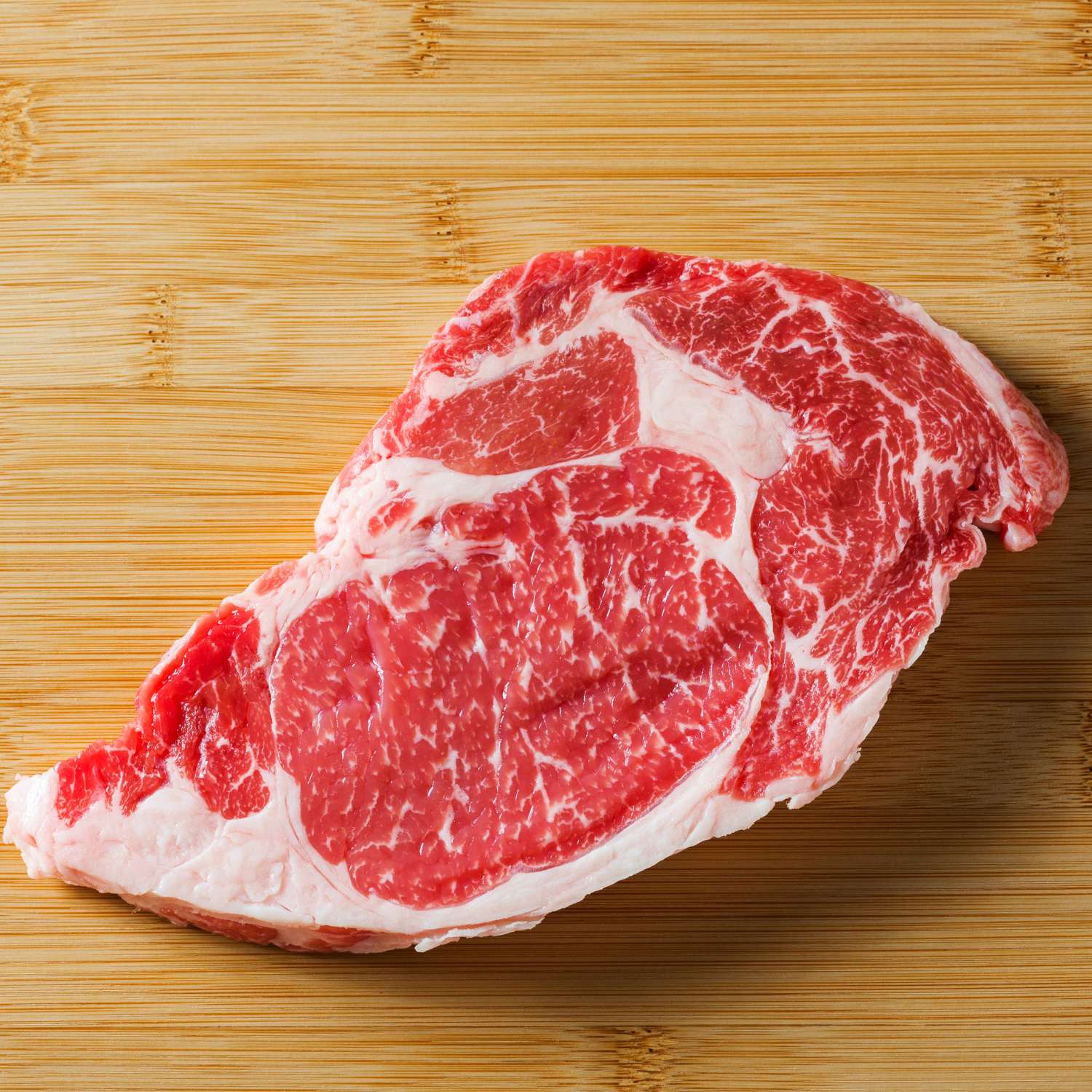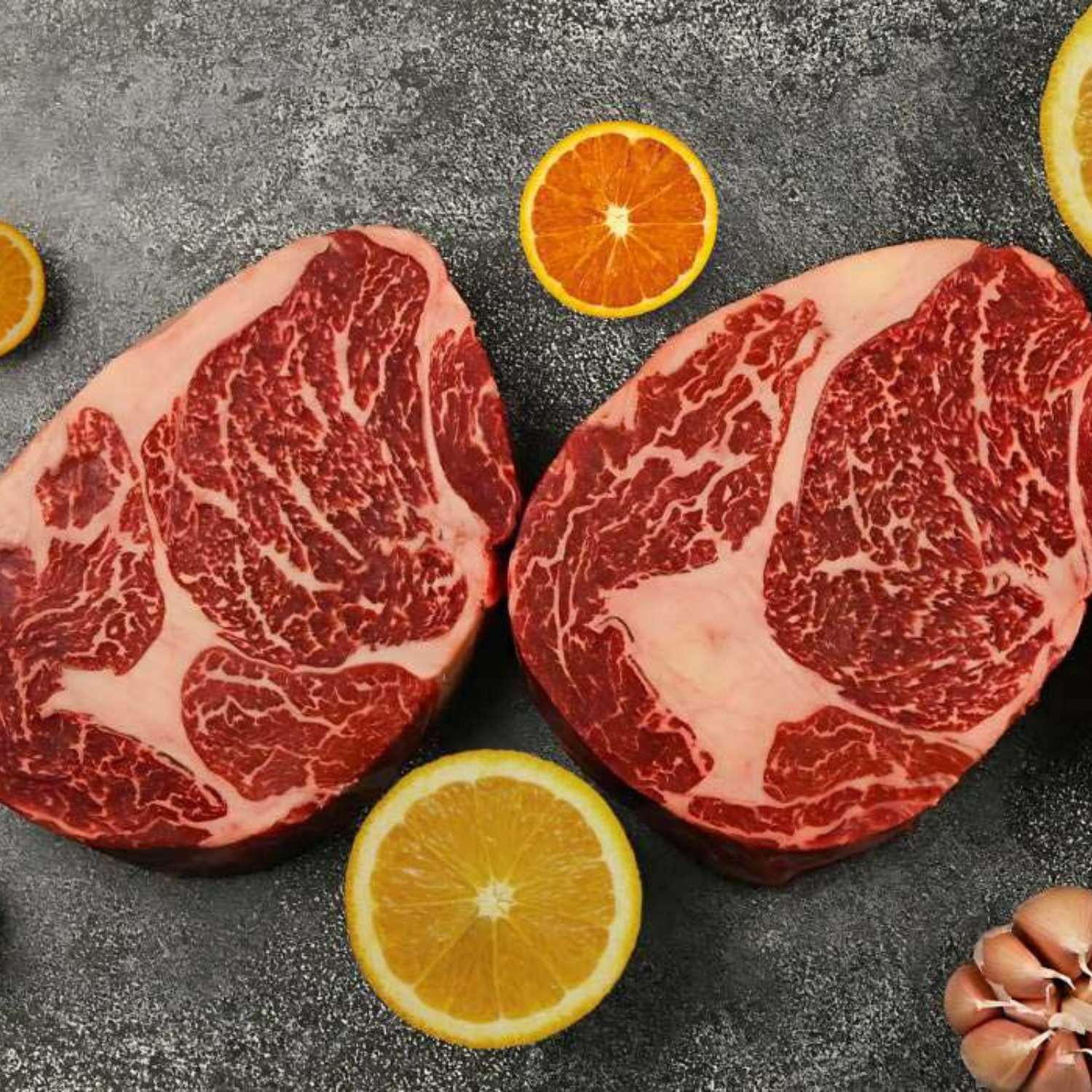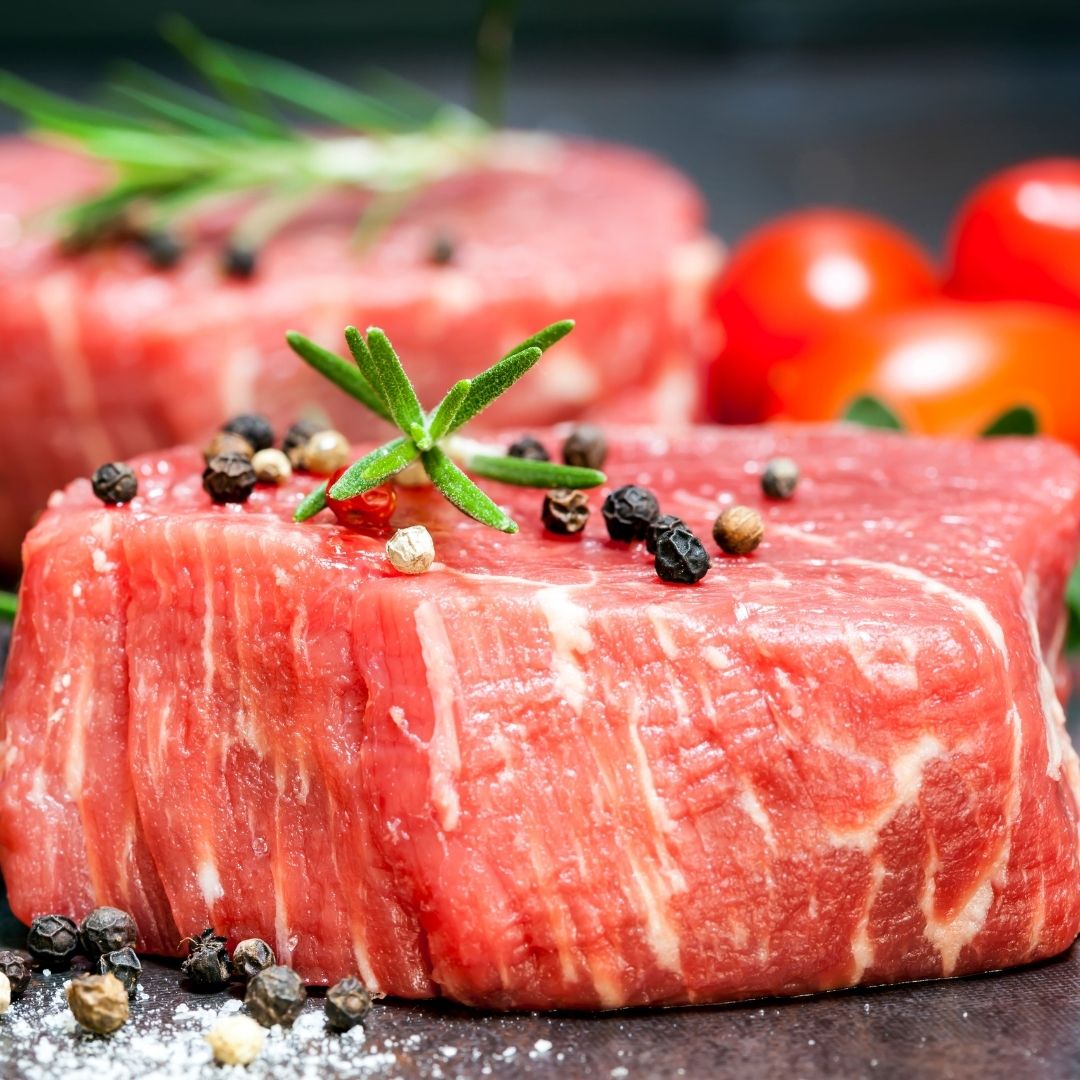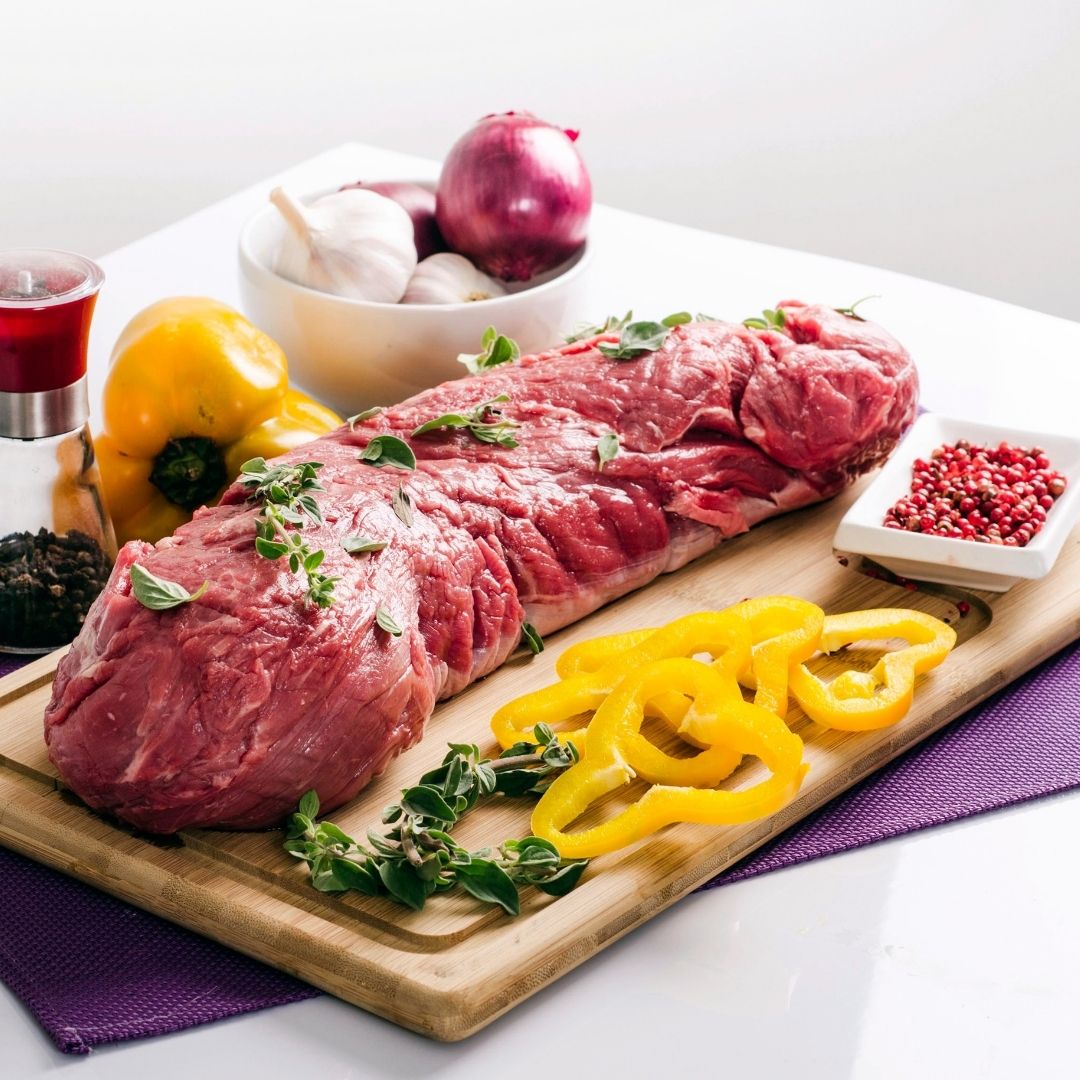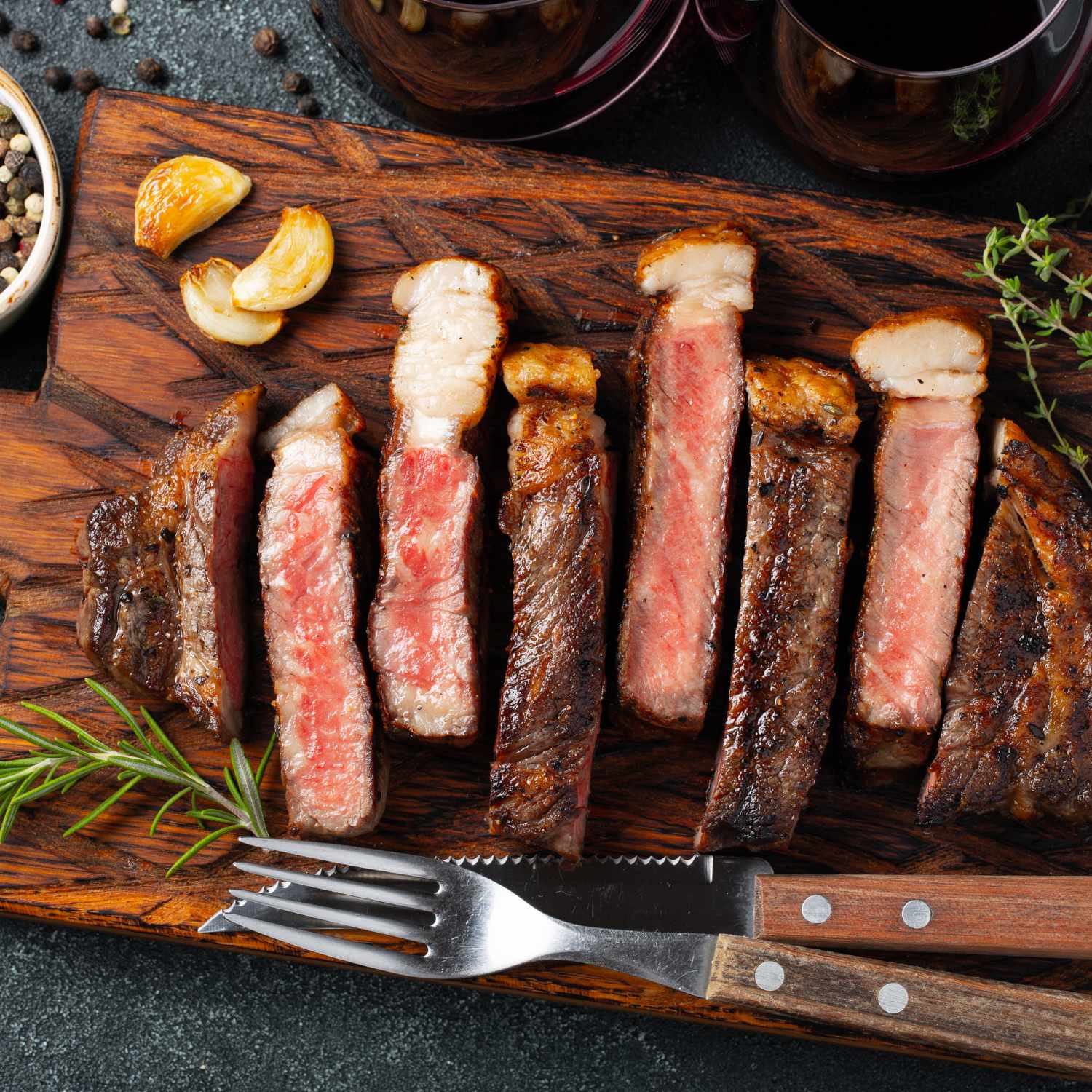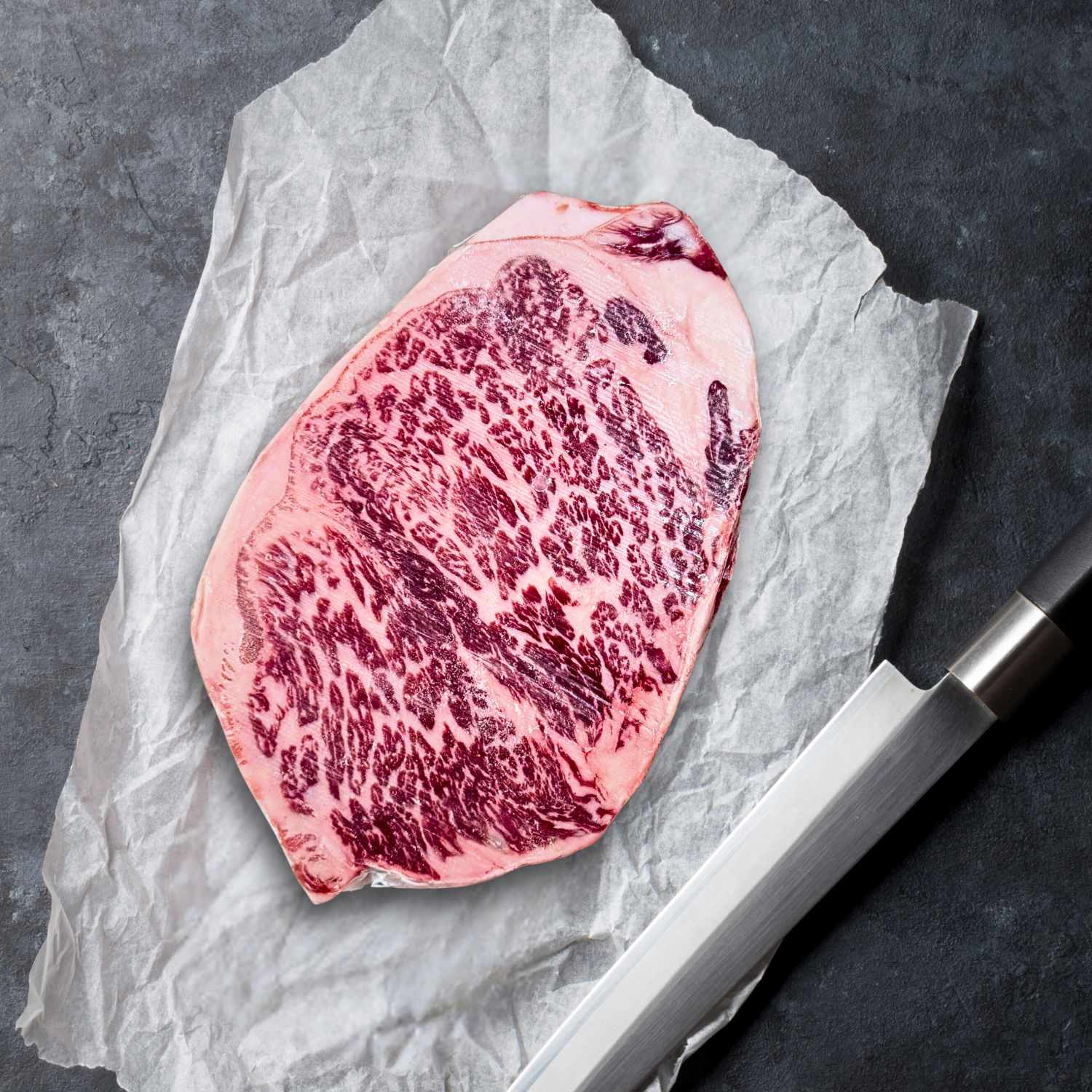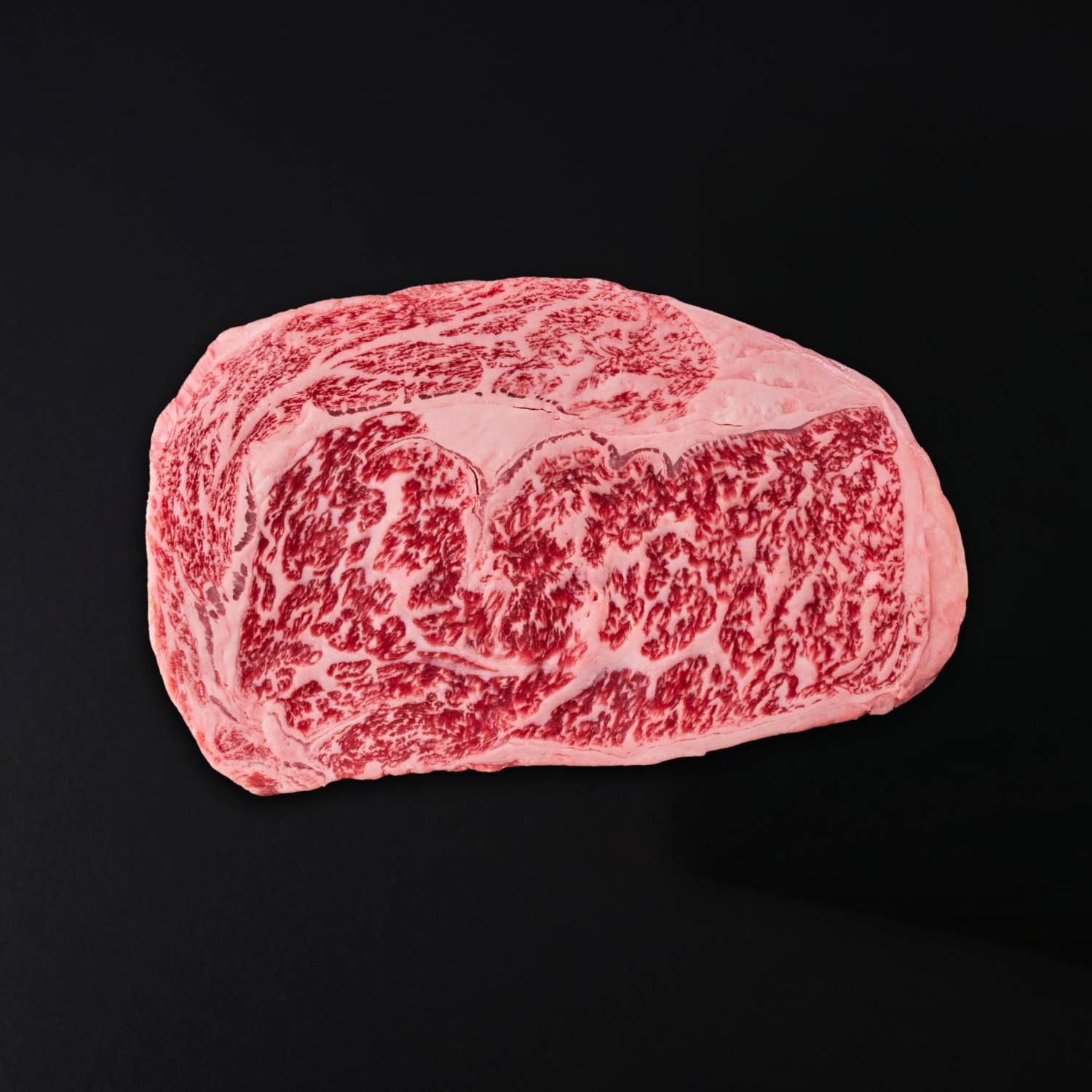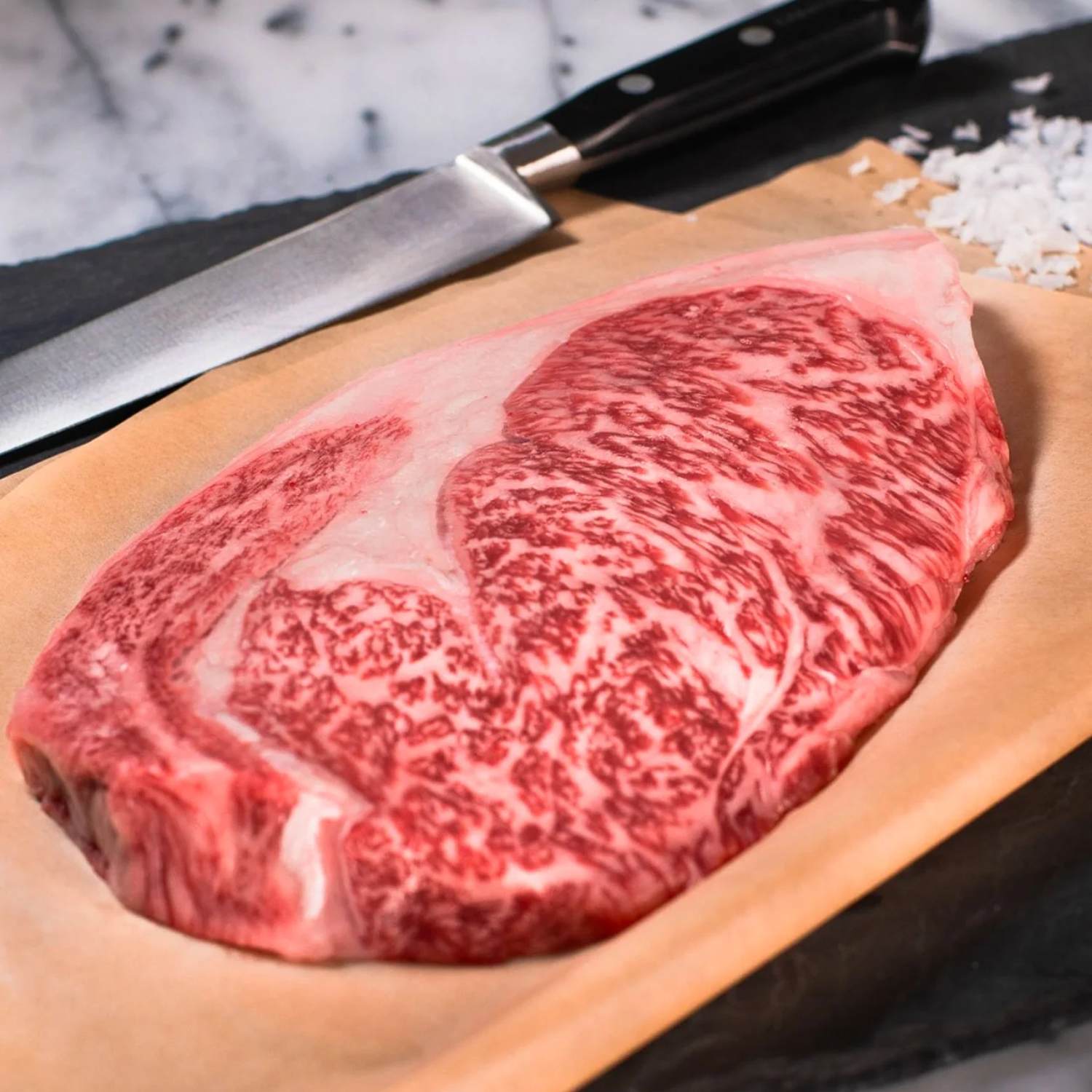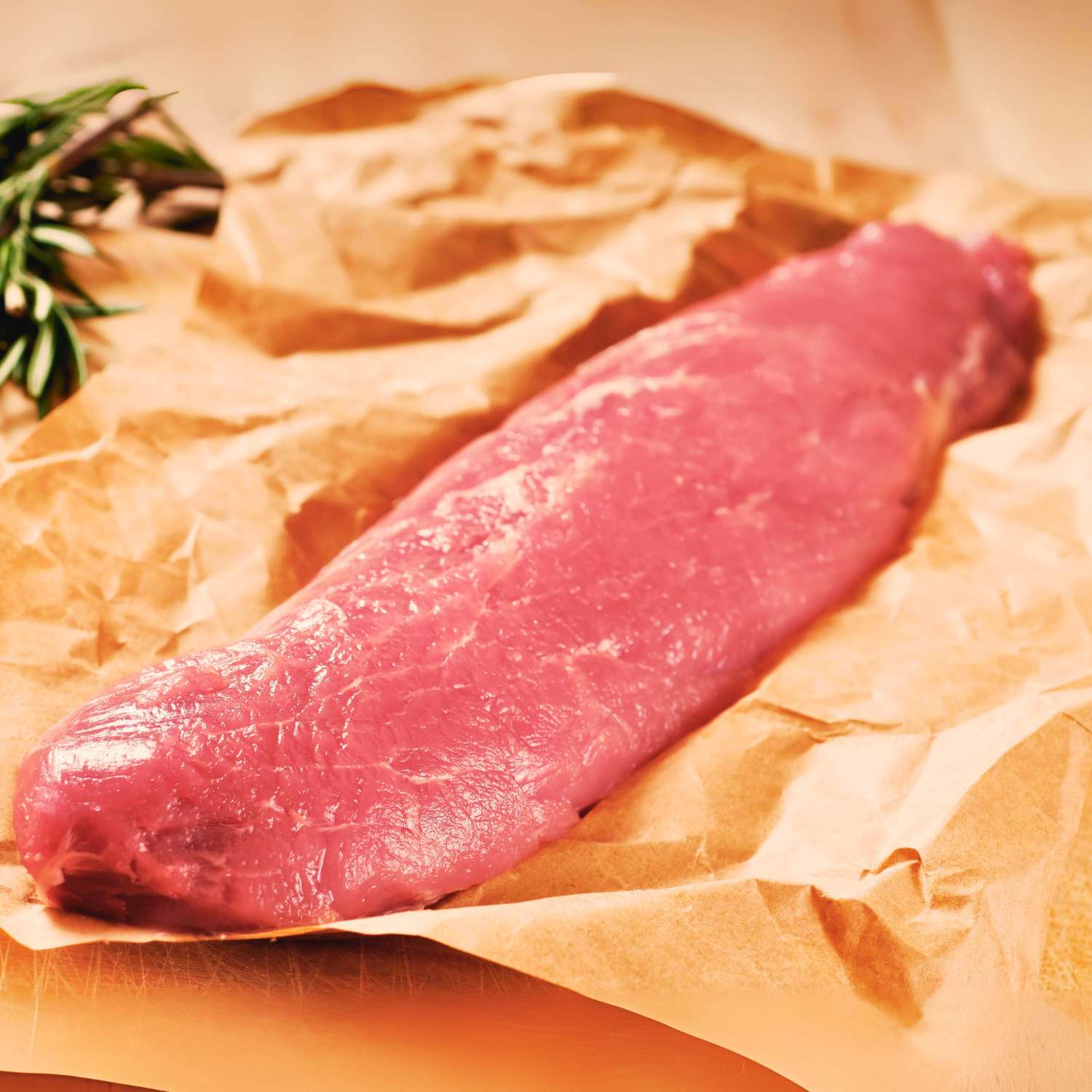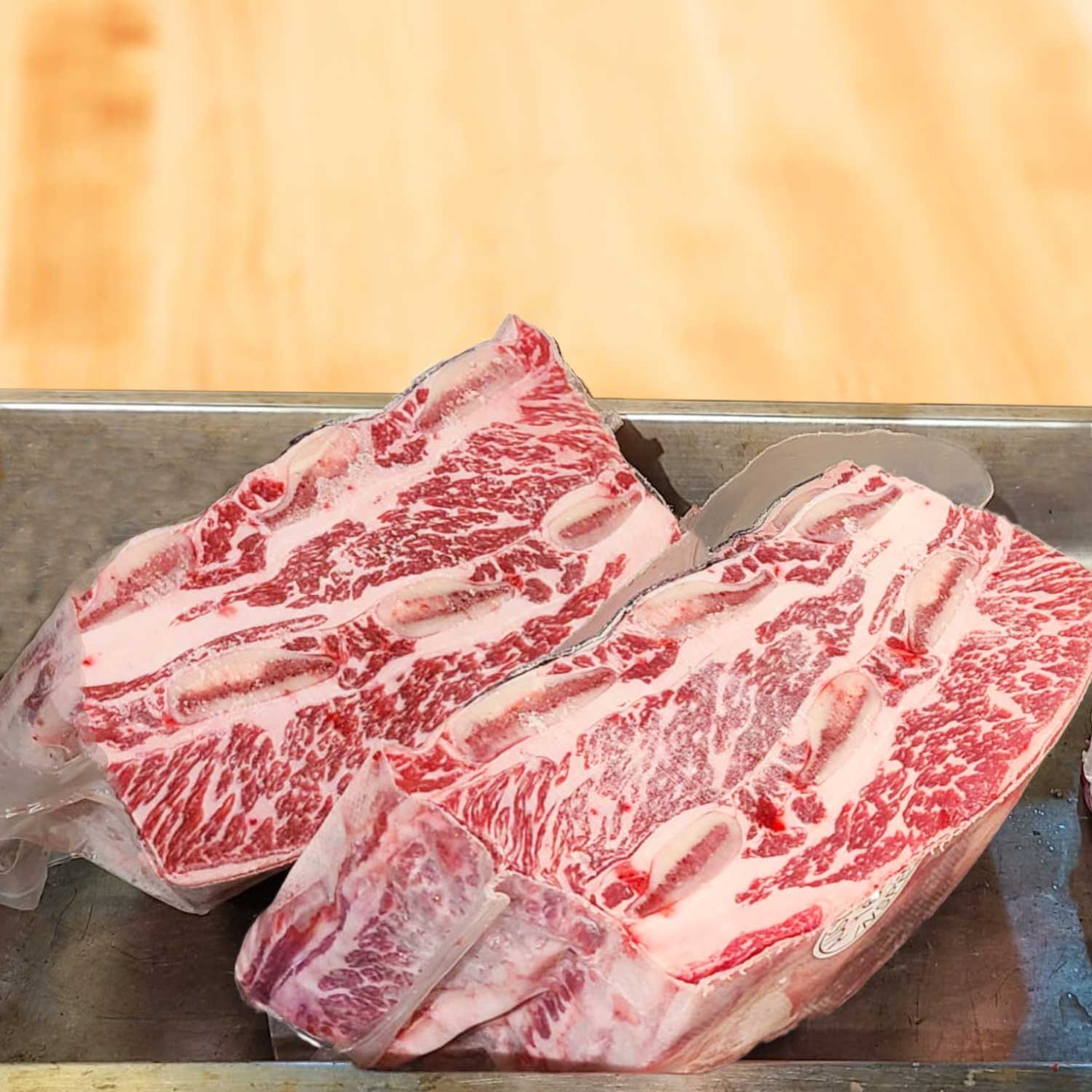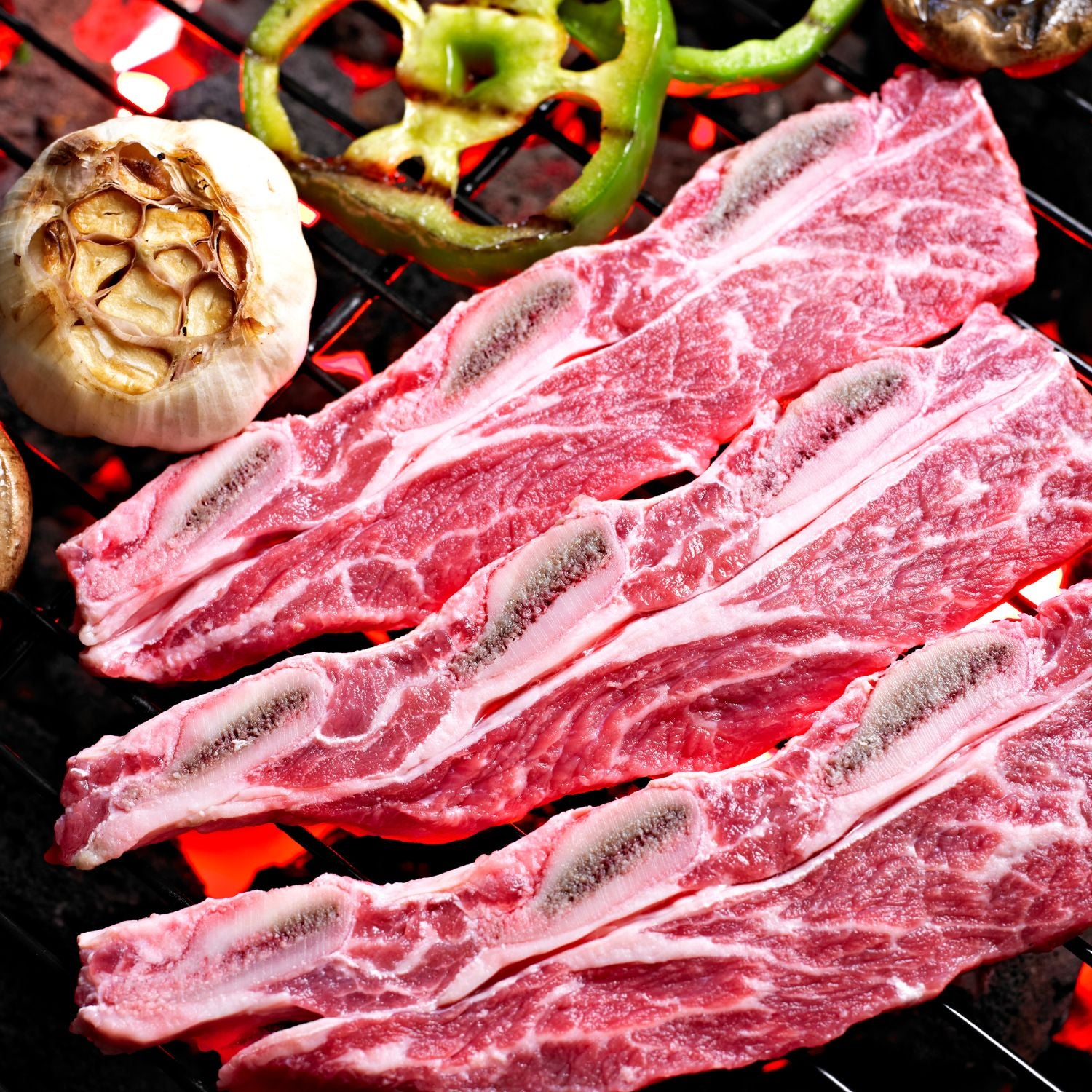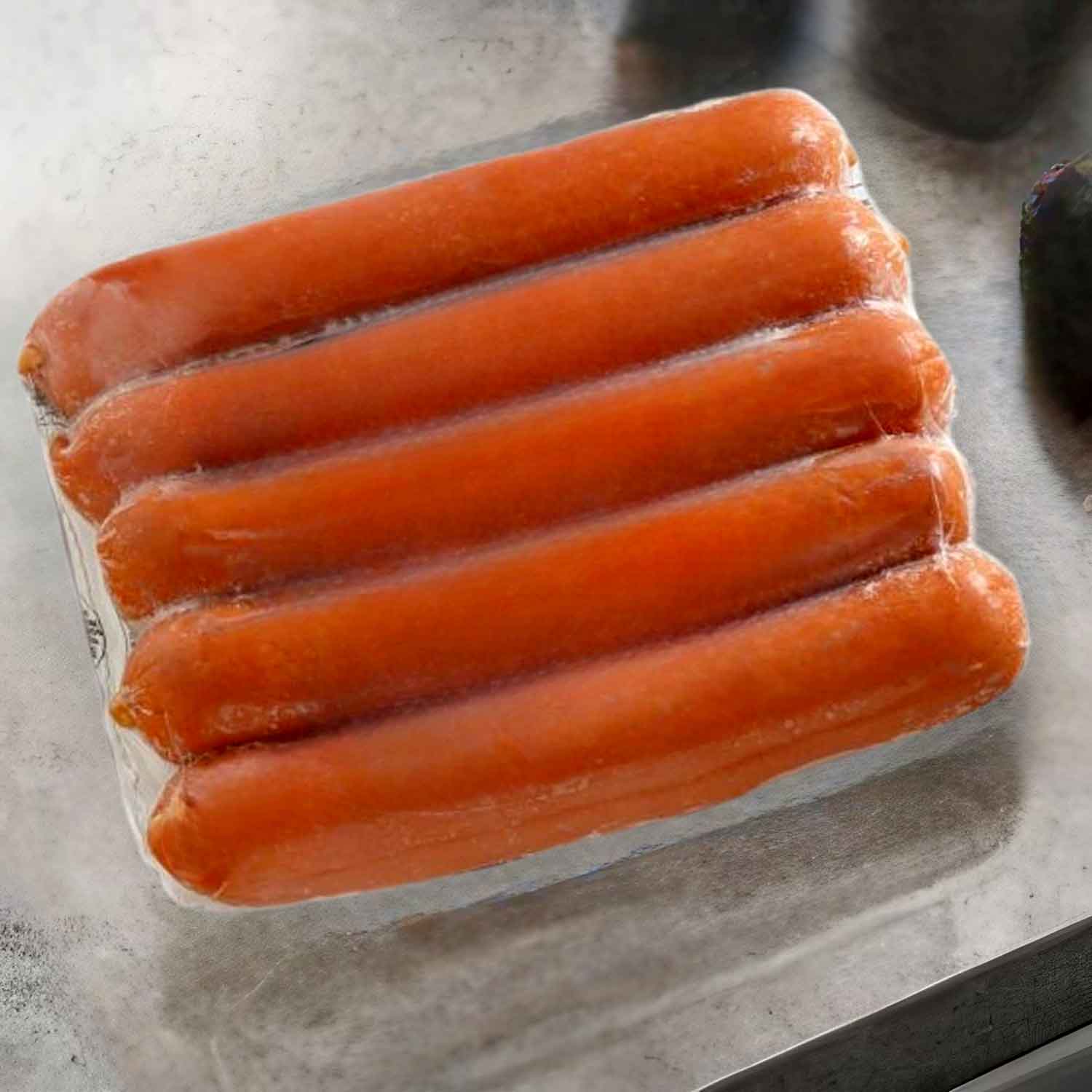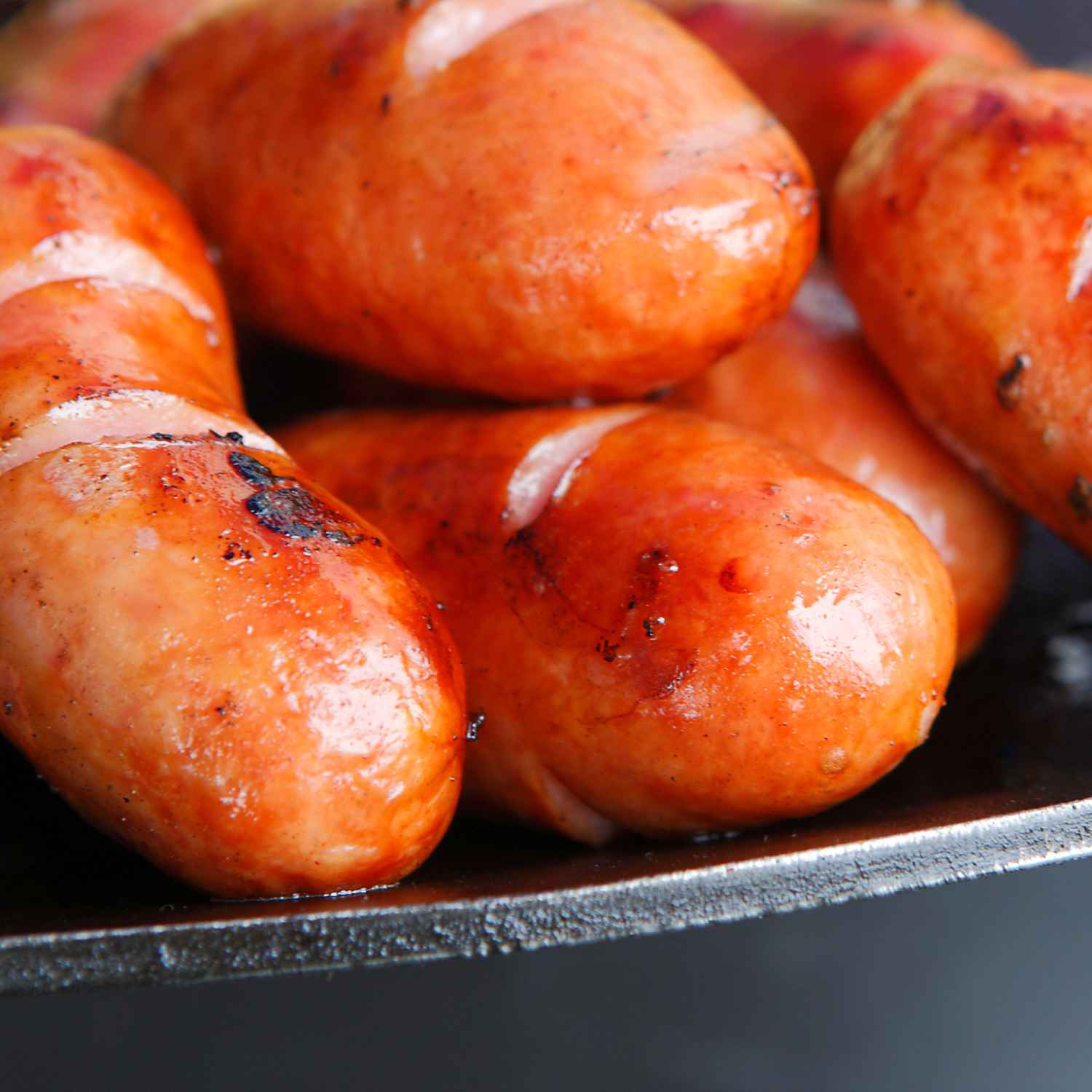Understanding the Essence of Wagyu and Striploin Steaks
The Origins and History of Wagyu Beef
Wagyu beef comes from Japan with a rich history. It is known for its marbling and taste. The word 'wagyu' means 'Japanese cow.' This beef is from four main breeds. Farmers raise them with care for top quality. Wagyu came to Hong Kong and became a luxury food. Now, local chefs cook it for its unique flavor. History shows it’s eaten for celebrations. Today, Hong Kong loves wagyu for its special qualities.

What Makes Striploin Steaks a Favorite Among Food Lovers
Striploin steaks hold a special place in the hearts of food lovers. The meat is known for its balance of tenderness and rich flavor. A favorite in Hong Kong, striploin is often a top choice for steak enthusiasts. It's less fatty than ribeye but more marbled than sirloin, hitting a sweet spot. This cut offers a satisfying chew without being tough. Plus, it's versatile. You can cook it in many ways, such as grilling or pan-searing. For many, it's the go-to cut for a delicious, hearty meal.
Key Differences Between Wagyu and Striploin Steaks
Wagyu and Striploin steaks are both loved by meat fans. Wagyu comes from Japan. Its fat melts at low temps. This gives a tender texture. Striploin is leaner and has a bold beefy taste. It's great for grilling. The main differences are in fat content, texture, and cooking styles. Wagyu needs gentle cooking. Striploin can handle high heat. Knowing this can help you cook each one right.
Cooking Techniques for Wagyu and Striploin Steaks
The Ideal Methods for Pan-Searing Wagyu Steaks
To pan-sear Wagyu, you need a hot, heavy skillet. Warm the pan over high heat. Pat the steak dry. Season it just before cooking. Place the steak in the pan. Let it sear without moving. Cook for 3 minutes each side. Reduce heat if it smokes a lot. Flip and sear the other side. Use tongs to turn the steak. Add butter, garlic, and herbs at the end. Baste the meat with melted butter. Let it rest for 5 minutes before serving. Enjoy your perfect Wagyu steak!
Sous Vide: A Game-Changer for Perfect Striploin Steaks
Sous vide is a cooking style that can transform your steak. It cooks meat slowly in a water bath at a low temp. Striploin steaks become tender with this method. Just seal the steak in a plastic bag and set the right temp. After sous vide, sear it quickly for a crispy crust. Patience is key – sous vide takes time but gives a perfect steak. Try this at home for juicy, evenly-cooked striploin.
Barbecue and Grill: Bringing Out the Best in Striploin Steaks
Grilling striploin steaks on a BBQ can enhance their flavor. To achieve this, follow these steps:
- Preheat your grill to a high heat before adding your steaks.
- Season the steaks with salt and pepper, or your preferred spices.
- Place the steaks on the hot grill and cook for 4-5 minutes each side.
- For a rare finish, aim for an internal temperature of 120-130°F.
Remember to let the meat rest after grilling. This allows the juices to redistribute, making the steak juicier and more tender.
Advanced Tips and Tricks for Hong Kong Home Chefs
Selecting the Right Cutlery and Kitchen Tools for Steak Preparation
Preparing steak needs the right tools. In Hong Kong, home chefs value quality. For Wagyu or Striploin, sharp knives are a must. These ensure clean cuts. A good butcher knife is key. A meat thermometer is also vital. It helps check if the steak is done. Heavy-duty tongs are needed for flipping the steaks. They keep hands safe from heat. Lastly, a sturdy cutting board is needed. It should withstand knife marks and high temps.
Pairing Wagyu and Striploin Steaks with the Perfect Wine and Dessert
Finding the ideal wine and dessert pairings is key to a steak dinner. For Wagyu, full-bodied red wines like cabernet sauvignon match well. Their rich flavors complement the buttery notes of the beef. For a sweet ending, dark chocolate-based desserts contrast nicely with Wagyu's richness. With Striploin, try a more medium-bodied red, like Merlot. Its softer tannins suit the leaner steak. Finish with a berry tart, whose freshness will cleanse the palate after the savory meal.
Measuring and Maintaining Temperature for the Ultimate Steak Experience
Getting steak right is all about control. Precise temperatures are key for a perfect sear. Measuring temp is vital in cooking, especially for premium cuts like Wagyu. Use a reliable meat thermometer for this task. Aim for medium-rare Wagyu at about 57°C (135°F). Striploin can go a bit higher, up to 62°C (145°F). Rest the steak after cooking to keep juices in. Cover it lightly with foil. Rest a 200g (7-ounce) steak for about 5 minutes. Larger steaks need more time, up to 10 minutes. Want a crisp crust? Sear at high heat quickly first. Then reduce heat to cook inside slowly. With the right temp control, your steak will be juicy and tender. Enjoy the best steak experience at home!



